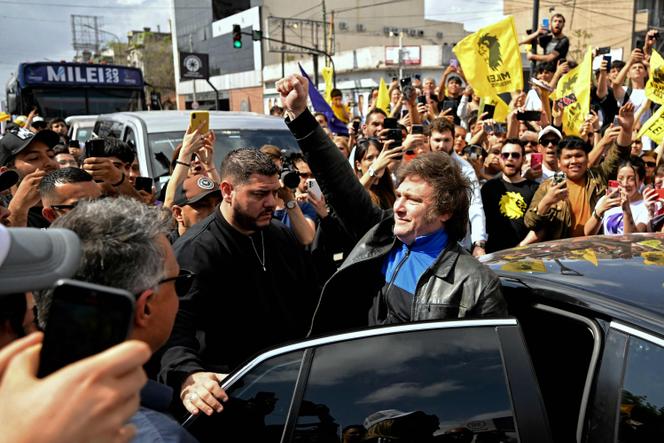


The frontrunner in Argentina's upcoming presidential election on October 22 is economist Javier Milei, known for his ultraliberal views. He puts his education to practice, regularly referring to the Austrian school, the liberal economic movement born in Vienna at the end of the 19th century. Such is the ideological foundation underpinning the vision of his potential mandate, namely a state reduced to a strict minimum, the condition for Argentina to "regain its greatness," he has stated with Trumpist accents. "I know how to grow an economy, end poverty and, above all, exterminate inflation," he asserted during the first presidential debate on Sunday, October 1.
With gross domestic product (GDP) set to contract by 2.5% this year, poverty affecting 40% of the population and inflation at 138% year-on-year, the economy is the subject that most concerns Argentinians. Nevertheless, experts from all sides are voicing concern and confusion about Milei's economic agenda.
The flagship measure of the candidate, who has only been involved in politics since 2021, when he was elected to the congressional Chamber of Deputies, is dollarization. In other words, by 2025, he would replace the national currency, the peso, with the US dollar. It is a radical measure that appeals to voters exhausted by seeing their purchasing power shrink in the face of the pas de deux of devaluation and inflation.
According to the candidate's logic, the dollar should bring clarity and stability to the economy. "It's a bad idea. The main obstacle is that there are no dollars [net reserves are currently negative, at $6 billion, or €5.7 billion]," observed Javier Timerman, co-founder of the AdCap Financial Group, in unison with many experts. On September 10, more than 200 economists published an article denouncing a "mirage" proposal that would lead to a loss of monetary sovereignty. In their view, it would make the country more vulnerable to "external shocks, and subject [it] to repeated periods of recession and to high unemployment."
Without foreign exchange reserves, dollarization could rely on foreign dollar loans or a massive influx of investment. "But Argentina has already disappointed too much for this to come to be the case," Timerman stressed. The country still has to repay a colossal $45 billion loan contracted with the International Monetary Fund (IMF) in 2018, under the mandate of Mauricio Macri (center-right, 2015-2019). The Washington-based institution itself expressed reservations, saying that dollarization was no substitute for a "viable fiscal policy." Argentina previously tested an unsuccessful version of dollarization called "convertibility," where 1 peso equaled $1, from 1991 to 2002. The country lived without inflation for a decade. But this policy helped plunge the country into the great economic and social crisis of 2001.
You have 53.15% of this article left to read. The rest is for subscribers only.
